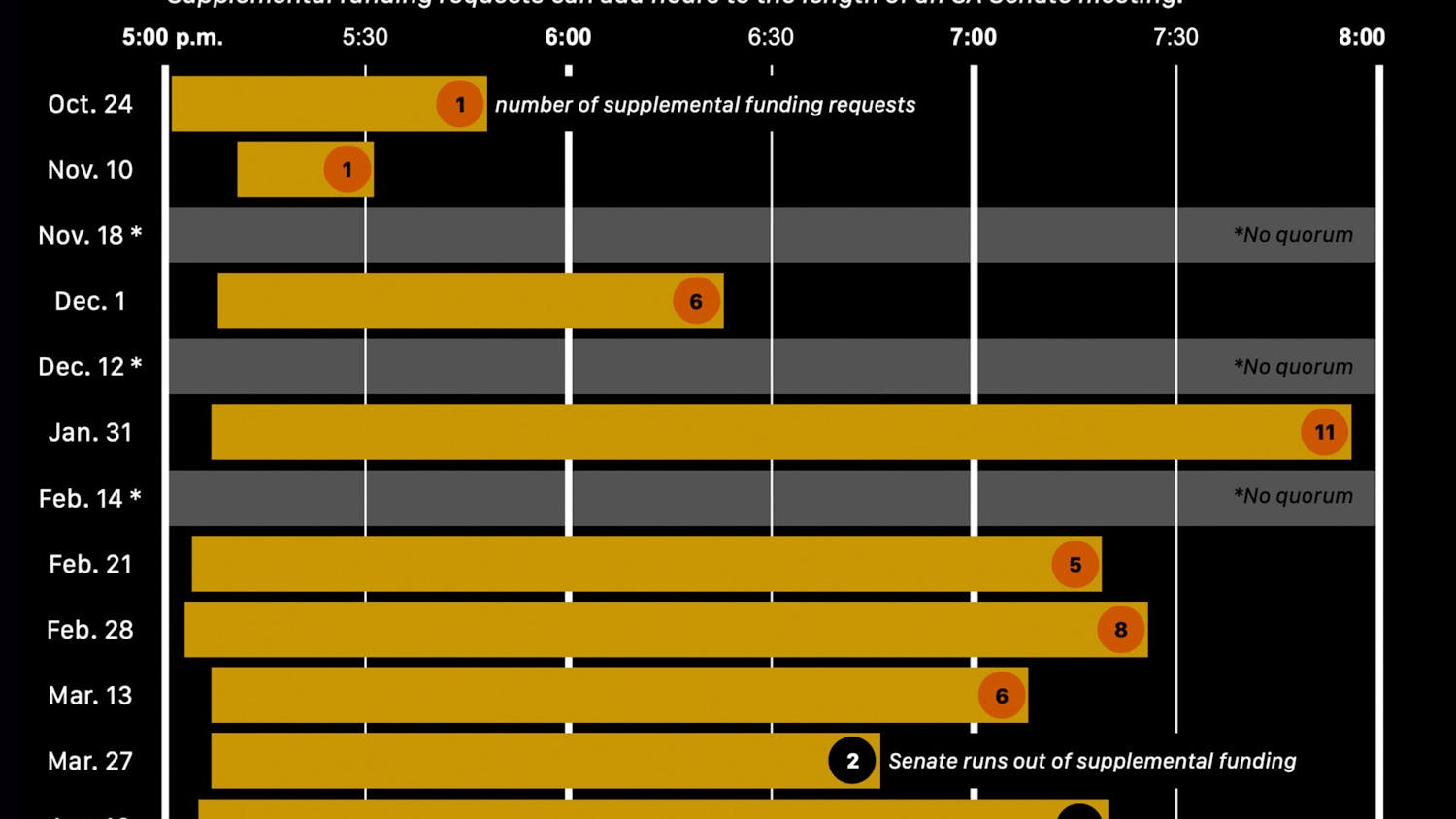The bombs over Afghanistan speak for themselves: the United States is at war. When the nation is in danger, the government must take steps to ensure the safety of our military abroad and our citizens at home. To ensure homeland safety, the federal government is currently requesting student records from colleges and universities around the country. Recently, the record of one UB student was investigated.
Student records include personal information such as a student's social security number, foreign visa information, ethnic background and disciplinary actions taken against the student.
Normally, schools allow release this information only with a student's written permission. Even parents can't even access their child's records without his signed consent. The federal government, however, can bypass this step with a legal subpoena, as it has done hundreds of times in its recent investigation of the Sept. 11 attacks.
The subpoenas are part of a series of measures crafted to expand federal powers. In response to calls to protect civil liberties, a provision that would allow federal investigators to examine student records without a subpoena was dropped from the "Patriot Act" recently proposed to Congress.
No one should worry that our right to privacy on campus is in danger - yet. In times of national emergency, every hole that exists in our domestic security gives a terrorist one extra entry to another tragedy. Security around the nation has stepped up in response, and we are in some ways safer than ever before.
As long as federal investigations into student records are confidential, conducted with a subpoena and localized to specific criteria that examine possible terrorist connections, the intrusion is justified. This way, minor infractions like a summons to the Student Wide Judiciary for drinking beer in Ellicott will remain within a student's private domain while allowing the FBI access to information relevant to maintaining national security.
Concerns regarding student privacy are justified, though. The Patriot Act bears the irony of defending Americans while corroding their individual rights. While the current background checks via student records fall within acceptable boundaries, it is easy to see how this could swiftly expand to more invasive measures.
For instance, examination of the Patriot Act reveals it to contain measures that allow foreigners, legal or illegal, to be jailed for up to a week without given reason. There is an immediate suggestion here that the government can perform sweeping investigations related to arbitrary characteristics, such as a person's ethnic background. The thought of profiling, based on either race or religion, is a dangerous idea.
An examination of the arrests made by federal authorities following the disaster provides a basis for concern. While a few witnesses had potential connections, the majority were held due to a similar background and last name. Although the temporary action may be necessary in the wake of the attacks, a law unfairly allows it to continue indefinitely.
Therefore, measures that make it legal for the FBI to tap e-mail and phone conversations carry a great risk. Attorney General John Ashcroft's proposals for the Patriot Act create a situation in which it is far too easy for investigators to spy on citizens who have no criminal intentions.
If such legislation is passed, investigators are given a blank check to snoop around for any reason, indefinitely. A more reasonable solution is to create a limited law, one which expires without Congressional review.
The current student background checks are necessary now only as specific, emergency measures. But when the conflict is over, the original policy must be followed, and the power to release records should be placed back into hands of the students.




